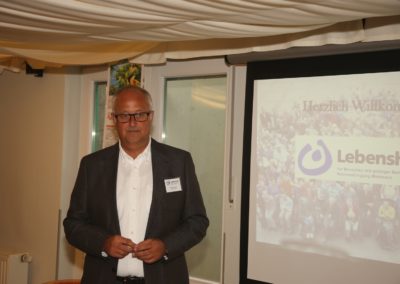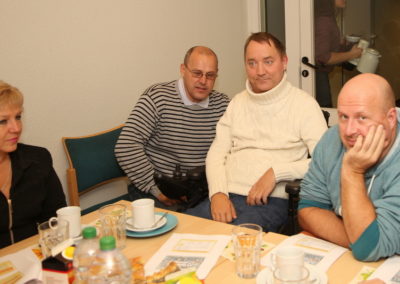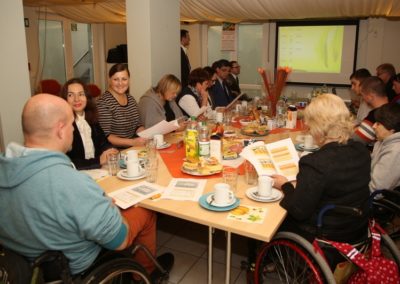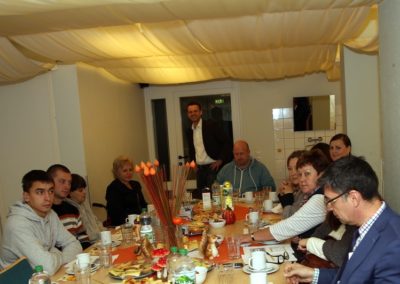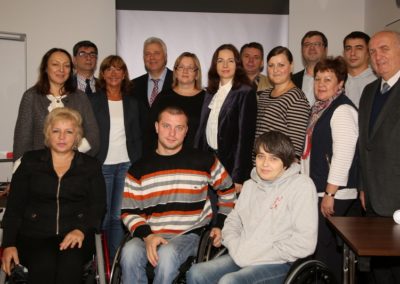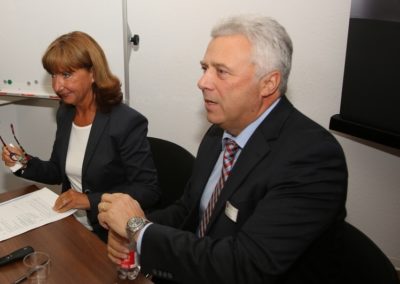Funded by the Federal Foreign Office of the Federal Republic of Germany and supported by the City of Düsseldorf, the International Academy for Management and Technology (INTAMT) e. V. organised a series of seminars and workshops from 12 to 17 October 2015 to build a contact and networking platform for the active transfer of know-how between self-help organisations of people with disabilities in the countries of the Eastern Partnership Belarus, Ukraine as well as in Germany and Russia. The project was also supported by the German-Russian Friendship Association Düsseldorf – Moscow and Dr. Angelika Mintrop-Aengevelt.
As part of this project, a meeting of representatives of self-help organisations for people with disabilities from Russia, Belarus and Ukraine with the head of the Office for Social Security and Integration of the state capital Düsseldorf Roland Buschhausen and the deputy head of the Department for the Elderly, Disabled and People in Need of Care Charlotte Heggen took place in the premises of the INTAMT Academy.
The lively interest in the lecture was reflected in numerous questions from the participants. “There were very concrete situations and examples that we discussed. And I notice: these are the same questions that have been particularly preoccupying us here in Düsseldorf in the last few years,” said Buschhausen. This is also reflected in the topics on the agenda of the Düsseldorf Advisory Council for People with Disabilities, confirmed his colleague Charlotte Heggen, who maintains close contact with its members. On behalf of the advisory board, she informed the participants of the meeting about its role and function.
The theoretical part was followed by a visit to the district association “Lebenshilfe für Menschen mit geistiger Behinderung” e. V. in Ratingen. Deputy Chairperson Stephan Brune underlined the importance of international exchange: “We are very pleased about the visit to our residential home for people with intellectual disabilities. Hopefully, we will succeed in giving the interested parties many suggestions for the work in their home countries.” Thanks to a lively discussion, the management of “Lebenshilfe” in the district of Mettmann was also able to learn about the situation of people with disabilities in Eastern European countries.
“There is a need to catch up in many areas,” said the head of the local branch of the “Association of Organisations of People with Disabilities” in the Ukrainian city of Balta Nadezhda Lentz. Above all, the tour of the house strengthened the workshop participants’ resolve to continue their work with full force. “What we have seen here is the concrete path we must now take,” Lentz summed up.
Marius Bartos, Executive Director of the district association, was impressed by the commitment of the guests: “These were very interesting and important issues that we discussed. It’s great to see so much commitment!” Brune and Bartos are certain: the cooperation with representatives of self-help organisations for people with disabilities from Eastern European countries will continue. The common interest in achieving a common goal provides the necessary thrust for this.

